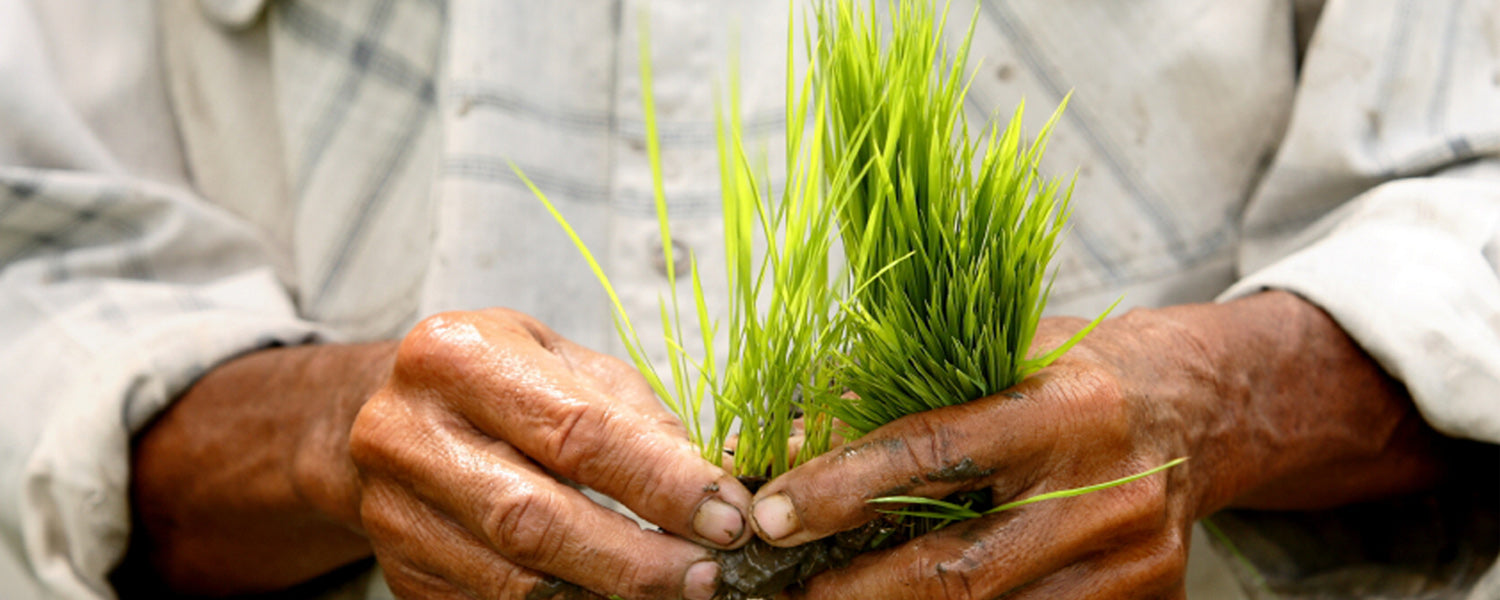What is Organic
Organic In A Nutshell
Organic farming recognizes that what we eat affects our health. Simply put, we are what we eat!. Organic is more than planting without harmful chemical fertilizers and pesticides. Organic farming:

- requires farmers to develop nutrient rich soil to grow strong healthy crops
- prohibits the use of drugs, antibiotics, preservatives, artificial colors and flavors
- bans production and use of Genetically Modified Organism (GMO)
- restores environmental health and ecological harmony
- preserves biodiversity and wildlife
- prohibits animal cruelty
Definition of Organic Agriculture
According to IFOAM, International Foundation of Organic Agriculture who is the leading body in uniting organic movements, organic agriculture is defined as:
A production system that sustains the health of soils, ecosystems and people. It relies on ecological processes, biodiversity and cycles adapted to local conditions, rather than the use of inputs with adverse effects. Organic agriculture combines tradition, innovation and science to benefit the shared environment and promote fair relationships and a good quality of life for all involved.
According to IFOAM, organic agriculture is one of humankind's most basic activities because all people need to nourish themselves daily. History, culture and community values are embedded in agriculture. IFOAM has established the 4 principles of agriculture, which apply to the way people interact with living landscapes, relate to one another and shape the legacy of future generations.
4 Main Principles of Organic Agriculture
1. Principle of health
Organic Agriculture should sustain and enhance the health of soil, plant, animal, human and planet as one and indivisible.
This principle points out the interdependence of the health of ecosystems and the health of humans. It is impossible to separate them because healthy soils produce healthy crops that nurture the health of animals and people.
The role of organic agriculture is to enhance the health of ecosystems, from the smallest in the soil organisms to human beings. In order to produce high quality, nutritious food that contributes to preventive health care and well-being, the use of fertilizers, pesticides, animal drugs and food additives that may have adverse health effects is avoided.
2. Principle of ecology
Organic Agriculture should be based on living ecological systems and cycles, work with them, emulate them and help sustain them.
Organic farming should fit the cycles and ecological balances in nature. It should attain ecological balance through the design of farming systems, establishment of habitats and maintenance of diversity, and protect and benefit the common environment including landscapes, climate, habitats, biodiversity, air and water.
3. Principle of fairness
Organic Agriculture should build on relationships that ensure fairness with regard to the common environment and life opportunities
Fairness is characterized by equity, respect, justice and stewardship of the shared world, both among people and in their relations to other living beings. Organic agriculture should provide everyone involved with a good quality of life, while animals should be treated accordance to their physiology, natural behavior and well being in mind.
4. Principle of care
Organic Agriculture should be managed in a precautionary and responsible manner to protect the health and well being of current and future generations and the environment.
Organic agriculture wants to ensure that organic agriculture is healthy, safe and ecologically sound. Only appropriate developments in new technologies to enhance and increase efficiency should be adopted and reject those with unpredictable ones with significant risks such as genetic engineering.

